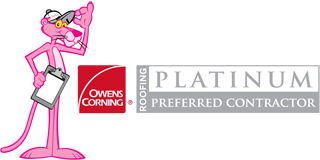Your home is an investment, which means that you’ll want to maintain and improve it in order to increase its property value. When making the decision to start a home improvement project—be it a roof replacement, energy-efficient windows, or new skylights—figuring out how you can properly budget for the materials, labor, and other associated costs can be a difficult task. Unless you have a ready supply of money that you can use to pay for the entire project, you will have to look into the financing options available.
Fixed Loans. Unsecured Loans. Deferred Payment. With so many different options to choose from, how do you know which one is best suited for your current financial situation?
There are a few different ways to go about acquiring a loan. Many home improvement companies even offer financing options themselves for your convenience. Here are some things to keep in mind when financing your latest home improvement project:
-
Compare quotes from different contractors. When talking with potential contractors, be as specific as you can about the size of the project, the materials you want to use, and what you want the final project to look like so that the contractor can give you a more accurate quote for your work’s specific needs.
-
Carefully review your finances before selecting a loan. Can you start making payments on the project right away or do you need to have the option of making a deferred payment? Do you have the collateral necessary to apply for a secured loan which generally has lower interest rates? Or would an unsecured loan be a better option for you right now? You may want to talk over all of your options with a financial advisor before making your decision.
-
Look into the Title 1 Property Improvement Loan Program if the equity in your home is limited. The U.S. Department of Housing and Urban Development insures loans made by banks and other lenders for home improvement projects that will make the house more livable. The loans can also be used to make a home handicapped-accessible. You can even use the loan money to pay for the contractor’s labor and materials used.
-
Validate that the contractor has a good record with the lender. Learn which loan provider your contractor uses. Then, call the lender to make sure that they have a good working relationship.
-
Thoroughly understand the financing contract before you sign. By reading the contract, you should be able to find how much the job will cost, the interest you will have to pay on the loan, the number of payments you will have to make for the loan, and the minimum dollar amount you will have to include in each payment.
-
Know that it’s illegal for lenders to discriminate when giving home improvement loans. The Fair Housing Act forbids loan providers from giving you more unfavorable terms and conditions or deny you a loan based on your race, religion, disability, the number of kids in your house, etc. But obviously lenders can still offer you different terms and conditions based on your credit score. If you feel that your lender has illegally discriminated against you, you can file a claim with the help of a fair housing advocacy group or your state government’s Office of Human Rights.
Paying for your home improvement project doesn’t have to be frustrating. At AROCON Roofing and Construction, we offer home improvement financing with fixed interest rates as low as 5.99% and fixed installment loans. To further simplify the process, we don’t require document submission and will work with you on creating the loan package that best fits your needs!






